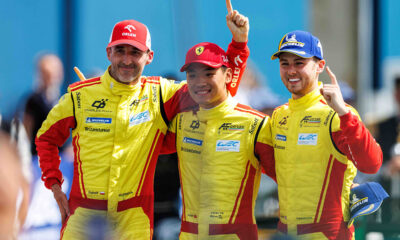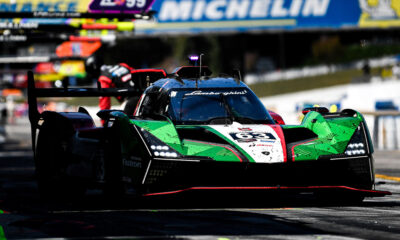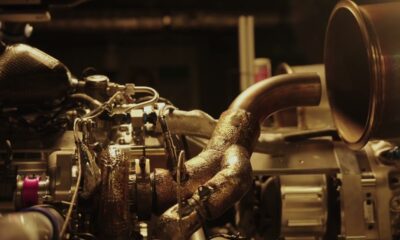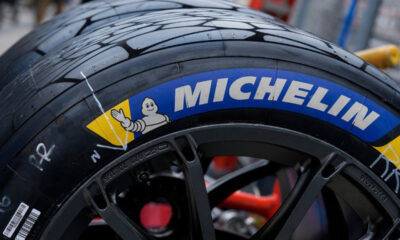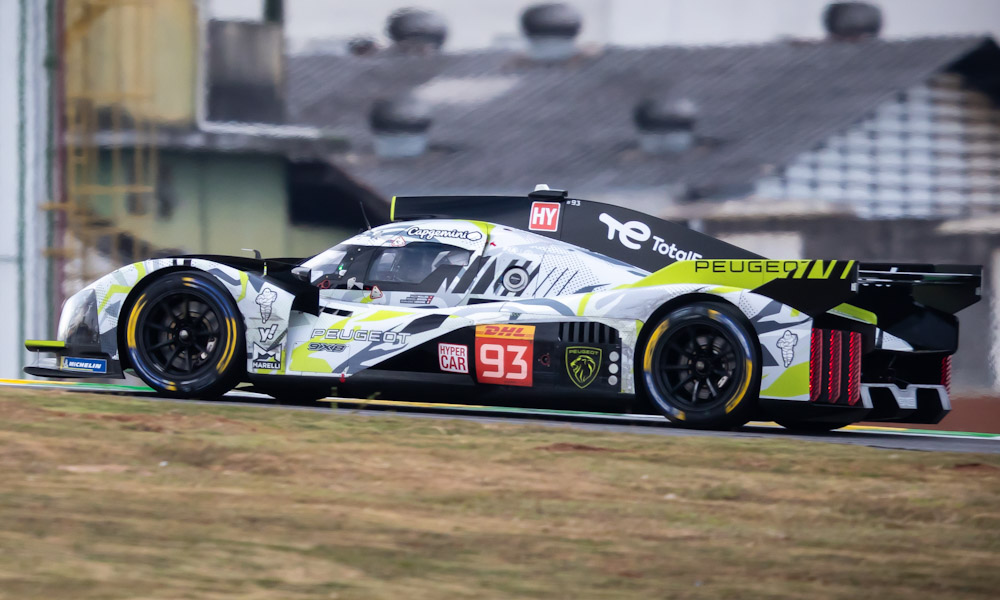
Photo: Andre Ferreira/DPPI
Peugeot Sport technical boss Olivier Jansonnie has downplayed the significance of the marque’s run to eighth in the 6 Hours of Sao Paulo, which he believes was down to being “smart” with tires and not any fundamental improvement in pace.
After qualifying well down the Hypercar order in 17th place, the No. 93 Peugeot 9X8 enjoyed a much better showing on race day at Interlagos, with the car shared by Jean-Eric Vergne, Nico Mueller and Mikkel Jensen claiming the revised 9X8’s best finish since its introduction at the Imola round of the WEC in April.
Key to the No. 93 car’s leap up the order was the decision to stick almost exclusively to the hard-compound tire on a day during which tire degradation was critical, except for the closing stages when Peugeot reverted to the medium after track temperatures fell.
This was allied to a decision to change the car’s right-side tires from the first pit stops, whereas the majority of the field only started doing this from the second stops.
But Jansonnie admitted that playing the strategy to perfection was to thank for the result and doesn’t believe that it will necessarily mark the start of an upward trend for Peugeot.
“We knew from free practice we didn’t have the pace to compete at the front,” Jansonnie told reporters post-race. “We were targeting to fight against Alpine, BMW and Lamborghini, and this is what we did and what we managed to succeed in.
“If you look at the second stint in the end, we made a different tire choice compared to other people. We were a bit worried about the degradation, so we didn’t want to double stint the tires. I think this was the right call in the end.
“Both cars had very low degradation and that explained why even with pace that was not so good we could finish in that position.
“It was a positive race for us in terms of operation, but the pace still wasn’t there. We made the best out of it. If you can’t be fast, you have to be smart.
“But we still have to find the pace and it’s difficult to tell in that respect if [the next race at] COTA will be better or not.”
Jensen echoed Jansonnie’s comments, also saying the way the 9X8 handled the hard-compound Michelin was a key component of the No. 93 car’s result.
“The temperatures were way higher [on race day], so this brought the hard tire into use and the car seemed to cope with it well,” reflected Jensen. “We had quite decent pace.
“The team did a great job on the strategy with Nico in the second stint with new right-hand side tires on the car. That gave us a jump up the order, I think from 12th to fifth.
“It’s a risk because you can lose time on the hard tires warming them up. But we had to try something coming from the back. That’s what secured our race.”
The sister No. 94 Peugeot of Loic Duval, Paul di Resta and Stoffel Vandoorne endured a more difficult race, finishing down in 16th after picking up two penalties – one for Duval forcing the BMW of Marco Wittmann off-track, the other for an unsafe release.
“In this midfield it’s very close, and you can easily go from P8 to P14,” said Jansonnie.
“The strategy was more or less the same for both cars and the pace was similar, but just the way it happened, the two penalties, makes a big difference in the end.”



















